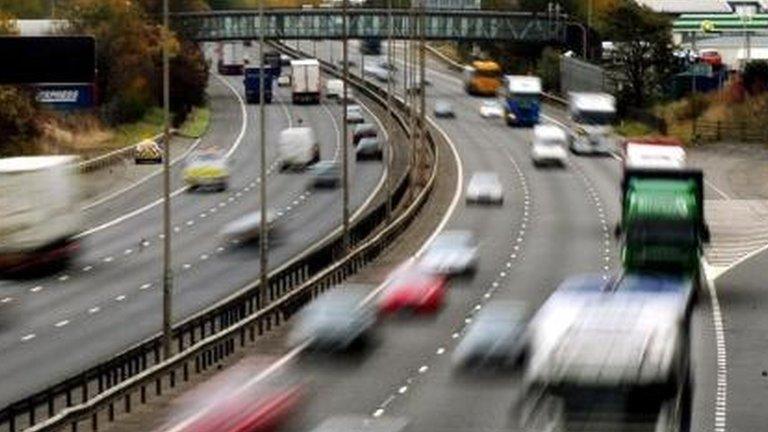Irish government's 'new politics' era survives trying first year
- Published
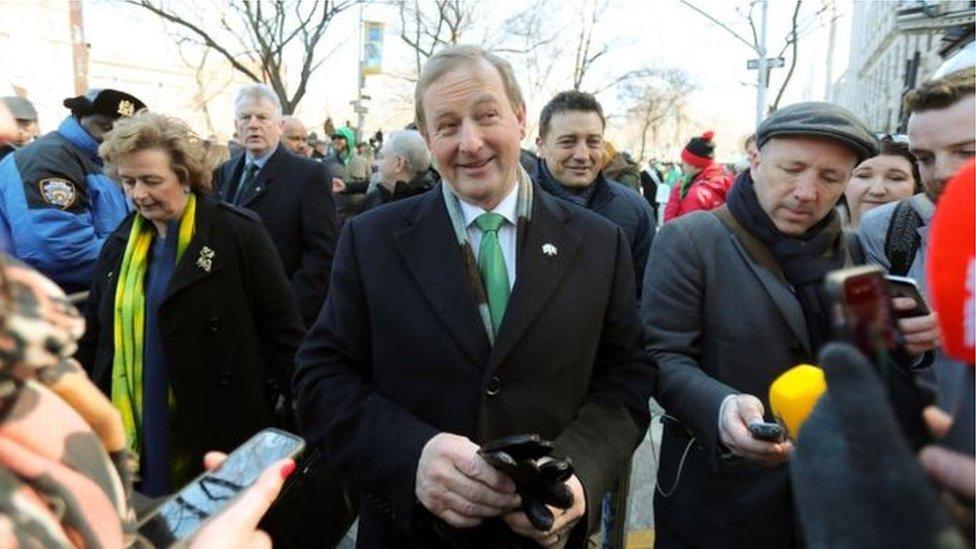
Enda Kenny has said he will not step down yet but is on his 'long goodbye'
A year ago a new Irish government was formed following an inconclusive general election and many weeks of negotiation.
It has lasted longer than some forecast.
Enda Kenny became Taoiseach (Irish prime minister) in a Fine Gael-led government, that included independents in the cabinet.
The main opposition party, Fianna Fáil, agreed to support the government for three budgets and in confidence motions.
Critics said this much derided "new politics" would not last 12 months, but it has - though it has come at price.
Compared to previous Dáils (Irish parliaments), very little legislation has passed - 18 bills in the last year, and six so far this year.
While previous governments dominated the legislature, this one is a prisoner of it and, as a result, bulls tend to get teased out a lot more.
This government tends to lose a lot more parliamentary votes too.
It is also the case that many decisions are pushed down the road partly because of the perception that a general election could happen unexpectedly.
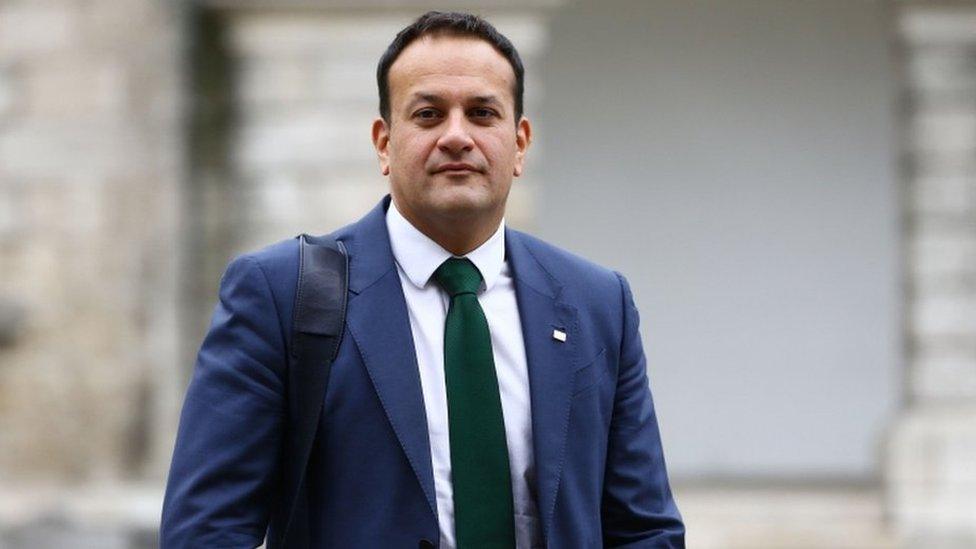
Leo Varadkar is one of the favourites to succeed Enda Kenny
That is partly the reason that Enda Kenny is now on his "long goodbye" as Fine Gael leader and taoiseach.
After a poor performance in his handling of allegations relating to the Garda whistleblower affair in February, his party feared there could have been an election even though he had said he wouldn't lead them into the next one.
That prompted Leo Varadkar and Simon Coveney, the favourites to succeed Mr Kenny, to hint gently that it was time to go but that they would give him the space to do so.
After the formal beginning of the Brexit negotiations, the end of Enda as leader seems nigh.
While in Canada, meeting Prime Minister Justin Trudeau, Mr Kenny appeared peeved to be asked yet again about his intentions.
Whoever succeeds him will do so at a time of great uncertainty, and not just because of Brexit and what it will mean for Ireland, north and south, politically and economically.
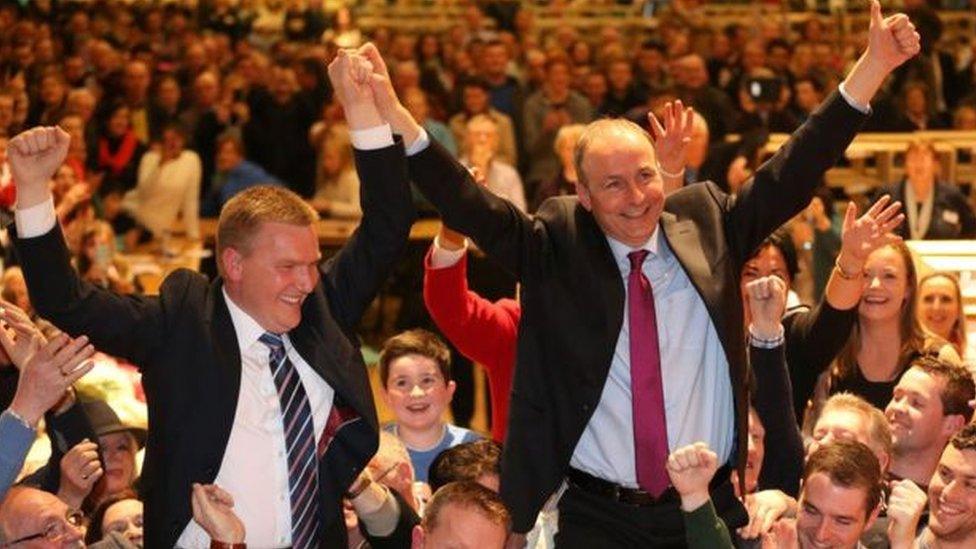
Led by Micheál Martin, Fianna Fáil, made significant gains in the 2016 election
"No politics" in Northern Ireland and "new politics" in the Republic may not seem the ideal scenario to deal with the complexity that Brexit will bring.
There are also decisions to be taken about that most vexing of issues - public sector pay after years of austerity.
It is an issue that so often in the past has brought the state almost to the point of penury.
While Fine Gael may well get a poll bounce with a new leader, the same polls show that if a general election were held tomorrow the result would not be very different from the last one, with no party in any way close to an overall majority.
As of now "new politics" seems here to stay.
- Published17 March 2017
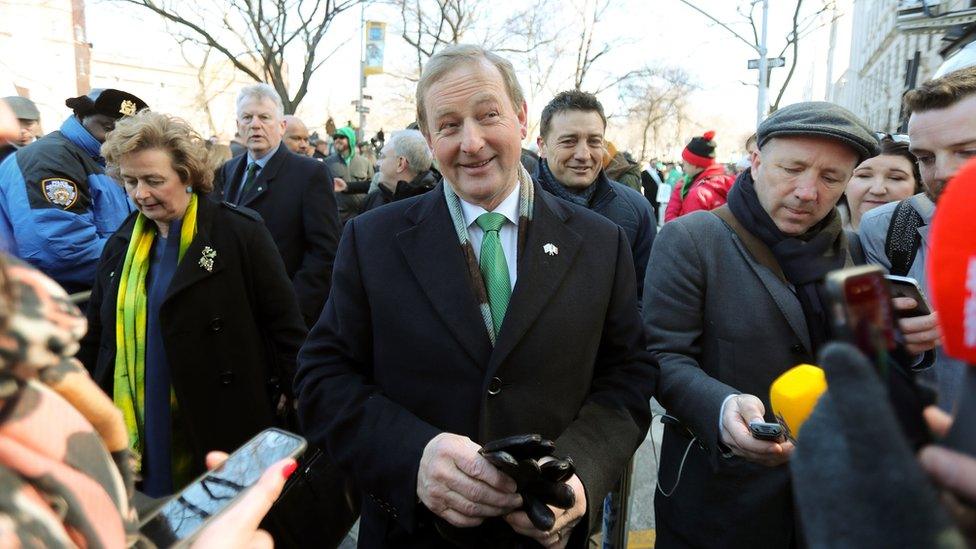
- Published15 February 2017
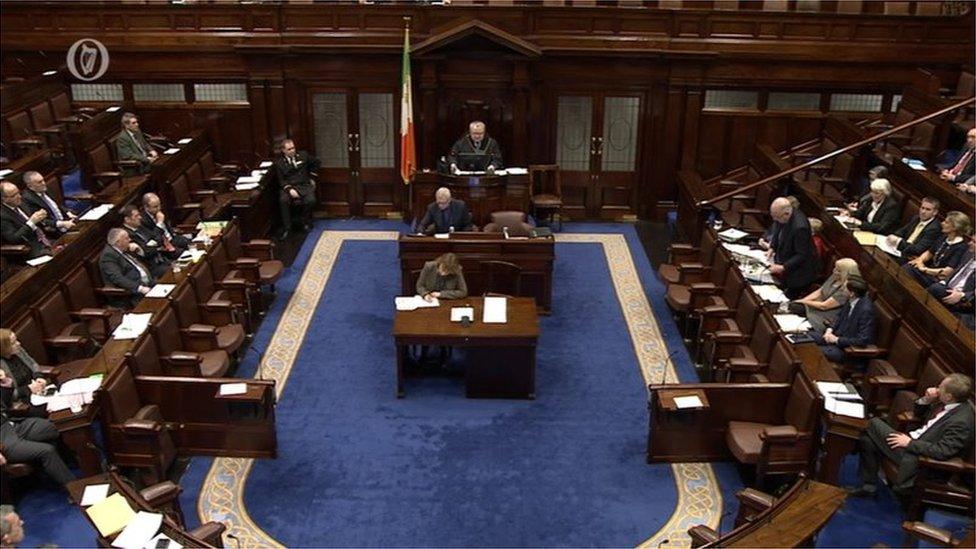
- Published21 March 2014
